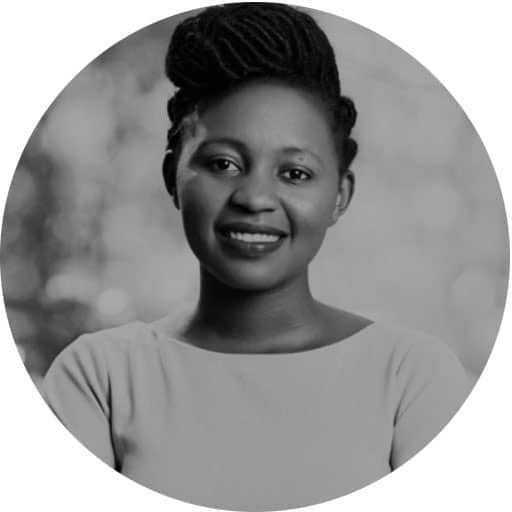Women in Data Science
Fridah Nyakundi, Biometrician and Data scientist (Alliance of Bioversity and CIAT)

Fridah Nyakundi
Biometrician and Data scientist (CIAT-Kenya)
Nairobi, Kenya
My role is split between statistical analysis and data management in CIAT Africa. It involves providing statistical backstopping to CIAT Africa research team through the full research cycle; from design to publication while supporting in-house capacity building in agricultural statistical analysis. I also support the data management process for CIAT Africa research through facilitating research data archiving for open access on our CIAT data verse and development of data products from the availed data.
What led you to pursue a career in data science?
I came to know of data science through a fireside chat event in 2014 at iHub Research; an innovation hub for the technology community-based in Nairobi. As a statistician, I was immediately hooked to the idea of knowing more about data science as it was critical for me to learn a programming skill that will help me communicate data stories to my community. In the summer of 2015, I enrolled in the iHub Research summer school for data science and I never turned back.
What has been the most exciting project you have worked on, or the one you are the most proud of?
I would say my most exciting project is NEWS (Nutrition Early Warning System). This is because it is our brand new initiative that seeks to strengthen nutrition information and early warning systems in Africa. I am excited about this because it uses artificial intelligence to guide African governments to save lives through effectively predicting malnutrition risk to better mitigate crises.
Do you feel this is an exciting time to be a woman working in the data sector?
Yes and no.
Yes, because as a woman working I have a chance to tell silent stories about food and agriculture through insights from data. No, because we have heard cases of unequal pay because one is a woman, unheard voices of women and many more issues that women data scientist face every day across the world. Being a woman is complicated in this sector but that doesn’t mean I back down.
Why do you think there is a lack of women in Tech/Data sectors?
I don’t think there is a lack of women in tech/data. I have met many wonderful women in the data industry working on projects that have significantly transformed the world. The problem is these women are sometimes unheard, doubted and invisible. Through initiatives such as International Women’s Day, there is so much we can learn from them if we could listen to their voices.
As a woman, did you face any obstacles/challenges in your career pathway to work in data science? Any advantages because of your gender?
My main challenge as a woman was getting information on opportunities to learn, grow and contribute because data science is mainly linked to men and thought of as a male career.
Yes, there is an advantage because as a woman. I bring a different perspective. For example in NEWS, when I see data on malnutrition, what I see is women with children dealing with issues I deal with every day. Handling data with empathy separates me from a robot that can do what we do.
Why should more women get into data science?
Women issues in Africa are neglected. And women can give men a run with their money and this will definitely enhance excellence in the sector.
How could more women working in data, specifically for the development/agriculture sector benefit the sector?
Women can innovate and digitalise the sector and this will encourage their children and all young people to get into agriculture and development.
What advice would you give to women wanting to get into data science?
My advice to women interested in data science is that they should set audacious goals and not look back. There is room for them here.



